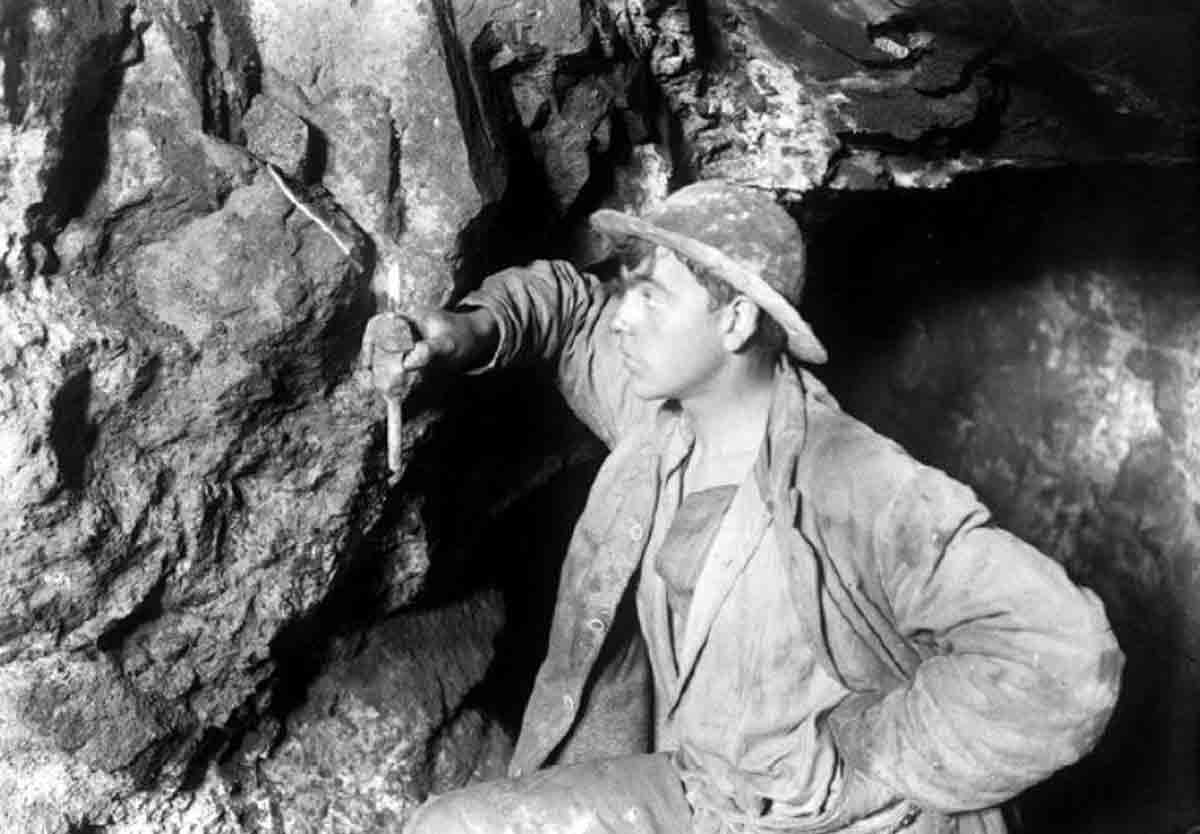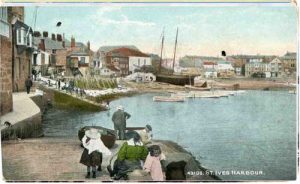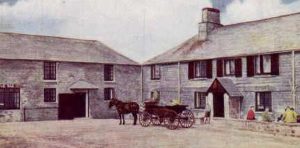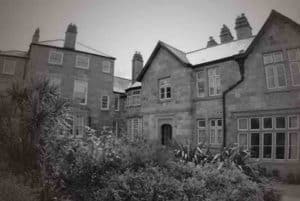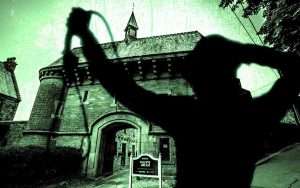MATTHEW E. BANKS explores the confusing 19th Century tale of a haunting at Wheal Alfred Mine in Cornwall
The further down the Cornish coast that you travel, the more rural the village, the more deeply superstitious the locals are, especially in the 19th century.
Many people took that superstition and used it as career advancement, such as Mary Roberts, a notorious prostitute. She was well known by the name of ‘Penryn Ghost’, due to her being able to disappear like a ghost when the police were around.
On 19 October 1840, Roberts was brought before W. H. Bullmore, Esq., charged with being drunk and behaving in a riotous and indecent manner. She was committed to Bodmin Gaol for three months.
On 18th September 1846, it was announced in the local papers that there was a ghost in Redruth:
“A GHOST – A real ghost was discovered on Saturday morning last, on the premises at Sinns, Redruth, and captured with very little resistance. When taken into custody, the wily spirit tried to pass himself off for a Mr. GORDON CHADWICK, a thing of flesh and blood – residing in that neighbourhood, cut the capturers were satisfied that it was a real ghost they had taken, and insisted on carrying the curiosity before the Reverend GEORGE TREWEEKE, who, being by his profession qualified to estimate the dangerous tendencies of this kind of existence, thought the requirements of the case met by an humble apology from the sprite, and a promise that he would, in future, abstain from taking his nocturnal recreations in that particular neighbourhood.“
It would appear by all accounts that the local populous, wrapped up in the superstitions and fears of a bygone age were susceptible to see the supernatural at work everywhere.
The following events took place in the year 1856.
Wheal Alfred Mine and surrounds, near Hayle, Cornwall
On the outskirts of Hayle, there once stood the Wheal Alfred Mine, which in 1814 was one of the richest mines in the county of Cornwall.
By 1848 the mine that once yielded 1,000 tons of copper ore per month as well as lead was barely operational and barely productive.
Times were changing and soon a new ‘ore’ was being mined and that ore was silver. It is now a designated Site of Special Scientific Interest (SSSI) and is also a Geological Conservation Review site.
The mine is famous to geologists for its important mineral specimens such as mimetite, but of the buildings and workings nothing now remains.
A block of buildings consisting of two miner’s cottages faced the road and behind these cottages were mounds of ‘grey killas’ which were tinged here and there with colours of brick-dust red and dark olive green, depending on the minerals that were disposed of.
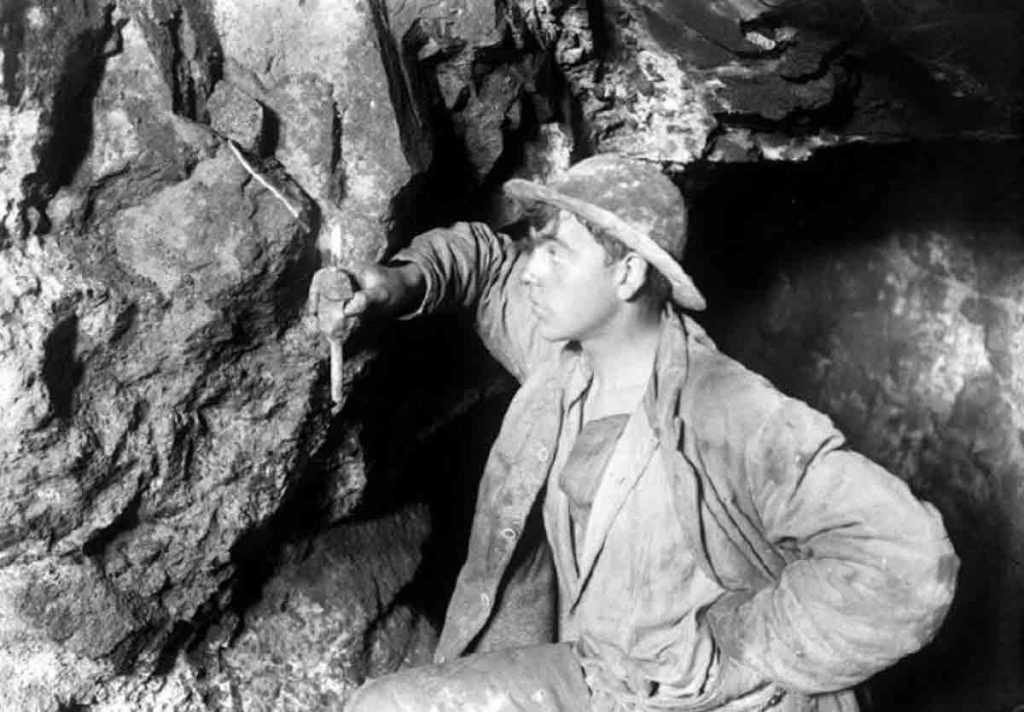
Dominating the skyline were coffin-shaped wooden structures that conveyed water to various workings of the mine, where buildings had fractured and bulging walls, the engine and counting houses were deprived of doors, windows and roofs half stripped by the wind, which when it swept through these near-derelict buildings made a noise, that to the susceptible locals sounded like voices from another world… another realm.
In the summer of 1856, these two cottages were occupied by the families of two miners. In the one cottage that faced the road there lived a miner with his wife, two sons and three daughters and in the other cottage lived a younger miner and his newly married wife.
At 9.30pm one calm Sunday evening in the summer, the local clergyman was preparing for his bedtime routine, when there came an urgent knocking at his front door.
Description of Wheal Alfred mine haunting
Upon entering his lounge, the clergyman came face to face with a young mine-captain, half supporting a woman agitated and hysterical, tears following down her cheeks.
Upon asking how he can help them, the mine-captain replied:
“I am sorry to disturb you, sir, at such a late hour, and on a Sunday too; but I offered to come down from near Wheal Alfred, where this person and her family live, just by way of company, for she is too much frightened to come by herself, and the others remain to guard the house, and to ask you if you would be so good as to go back with us and look into the matter, as they will not else be satisfied, for they say they have had no rest for the last seven days, by day or by night. Noises like those of a person clicking his finger-nails together, groaning, grinding of teeth, with occasional heavy blows at the head of the father’s bed, coming and going, sometimes by day, but continually by night, when the candle is put out, and they wish you to come and put the dead thing out of the house.”
After a lengthy discussion about the origins of these ‘noises’, the clergyman consented to accompany the mine-captain and woman back to her house and they left the Vicarage at around 10pm. On thanking the clergyman, the mine-captain added, “Because they have had three pious men there all evening trying to put the thing out, but it is too strong for them.”
On the two miles walk back to the woman’s home, the mine-captain kept encouraging her to go on as her fear was absolute, whilst the clergyman promised her that he would rid the house of this mischievous spirit, if spirit it be.
As they passed under the Angarrack Viaduct, the woman started to groan again and the reason being is that they soon came across a dilapidated shed by the wayside, windowless, doorless, its thatched roof half gone and the floor stacked with heaps of refuse from the mines, its glory days long since gone. At this point the poor woman gave a shriek and grabbed the mine-captains’ arm, as tears swelled in her blood-shot eyes.
The clergyman turned to see what the cause of such emotion was, when he could see nothing to cause it. Catching the clergyman’s look, the mine-captain explained, “Do not be afraid, Sir, a poor brother of this lady hanged himself, unfortunately, in that shed about a year ago. Maybe it is but fancy, Sir; but something like a shiver in the air, or as a large bird flying past, did seem to go by me just now, for that poor young man worked with me at Wheal Alfred for many years. Did you feel anything, Sir?” The clergyman said that he had felt nothing, but began to fear that the mine-captain had been caught up in the poor woman’s hysteria.
As they approached the cottages, they could see light emanating out of an open doorway and hear the sounds of voices, groaning, pleading, praying and addressing something that could hear, but not be seen. Entering the house, the first thing that the clergyman saw was three elderly men standing around a table, upon which sat a Holy Bible. These men were evidently miners, their well-worn features etched with the strain of trying to rid their friend of this entity. When asked what was above, one of the men explained that there was but one room above, which was a bedroom for the whole family. From this room came the sounds of weeping, wailing, praying. Suddenly one of the daughters was heard screaming “Glory! Glory!” and “Mercy! Mercy! I will be saved!” “You’d best go up” said one of the miners. The clergyman nodded in agreement and took to the stairs.
The room before him was open to the thatch and held three beds. Upon these beds were the Mother and father upon one, the two sons upon another and on the third were two of the three daughters, one of whom had called upon him. A third daughter was laying upon the floor, beating it with her hands, rolling her head from side to side and shouting. The father got up and went towards the clergyman, “My daughter, Sir, has been taken down under prayer this evening, at a revival in — chapel, and we are so glad and grateful to you, Sir, for coming here this night. We cannot rest – we have not slept for nearly seven nights, except for a few minutes in the daytime, because there is a dead thing in the room. It begins clicking when the light is put out, and when I call upon it to answer by knocks if it were the spirit of —–, a heavy blow came just behind me, there, as I was lying on the bed.”
Looking around the room, the clergyman asked all but the mother, father and two sons to leave the room and once this was done, he spoke in a clear, precise voice:
“You believe in Jesus Christ, that He, as God, is All in all now – is not only all-powerful but all mercy and all love. Now even supposing that He, as God, had determined to allow any of such communication being made to you, not in accordance with his usual manner in these later days of Christian religion, would His doing so in such a manner as you are now led to think, be consistent with His Divine character? God is all powerful, so no angel could come to earth – no spirit of the departed return from the spirit-world without His permission. God is also all mercy and all love, and so, even if such an extraordinary permission were given, or means of communication allowed, in your case would it be carried out, in the way you now describe? So frivolous and vain – calculated only to frighten and alarm? Would not the message come in a way consistent with what you read and believe of your Saviour while on earth, and, as now, all-powerful, but all-loving and merciful in Heaven?”
The family, tired and worn out from lack of sleep, work and worry looked at each other, nodding in agreement with what the clergyman said, and then the father spoke, “We believe all that you say, Sir; but there are these noises and we have no rest from them, and by knocks it says that it is the spirit of —– from Australia.”
“Australia” murmured the clergyman, shaking his head. “Put out the light, place me behind the bed, between it and the wall, from whence the sounds proceed, and at that part where the blows come,” he commanded.
“The spirit will tear us, Sir,” the father replied fearfully. Understanding that the man just wanted to protect his family the clergyman retorted, “For all that, do as I say.” With his orders carried out, silence descended and the wait began. After about twenty minutes of nothing happening, no clicking, no banging, just silence, the clergyman reiterated what he had previous said about God and then made to leave. The mine-captain escorted him home and as they parted company, the clergyman asked that he might be informed as to how matters went with the ‘haunted’ family the following day and that he would pay a visit the following Wednesday, to see how matters were.
Clergyman returns to haunted cottage
The following Wednesday, the clergyman made his way to the haunted cottage and was greeted by all the family, except the mother, who he was told was ‘terror-stricken and truly scared.’
When he enquired as to what had transpired after he left, the father informed the clergyman of the events:
“After you left, Sir, on Sunday night we had rest till the middle of Monday, when the thing came back, and was more savage and noisy than ever. It went under the beds making a sort of sweeping sound upon the floor; then up to the rafters where it made a noise like a cock crowing; it grinded its teeth; and this very day, Sir, no sooner did you come near the house, than it made a lot of raps on the wall and was off again, and when you leave the place it will come back again as bad as ever.”
Puzzled by this turn of events, the clergyman promise to visit over the following three weeks, but did not give specific days on which he would call.
Over the following four visits, he was given similar reports and he noted that the cottage had gained a sort of unhealthy notoriety, with visitors turning up at all hours of the day or night, hoping to catch sight of some supernatural manifestation.
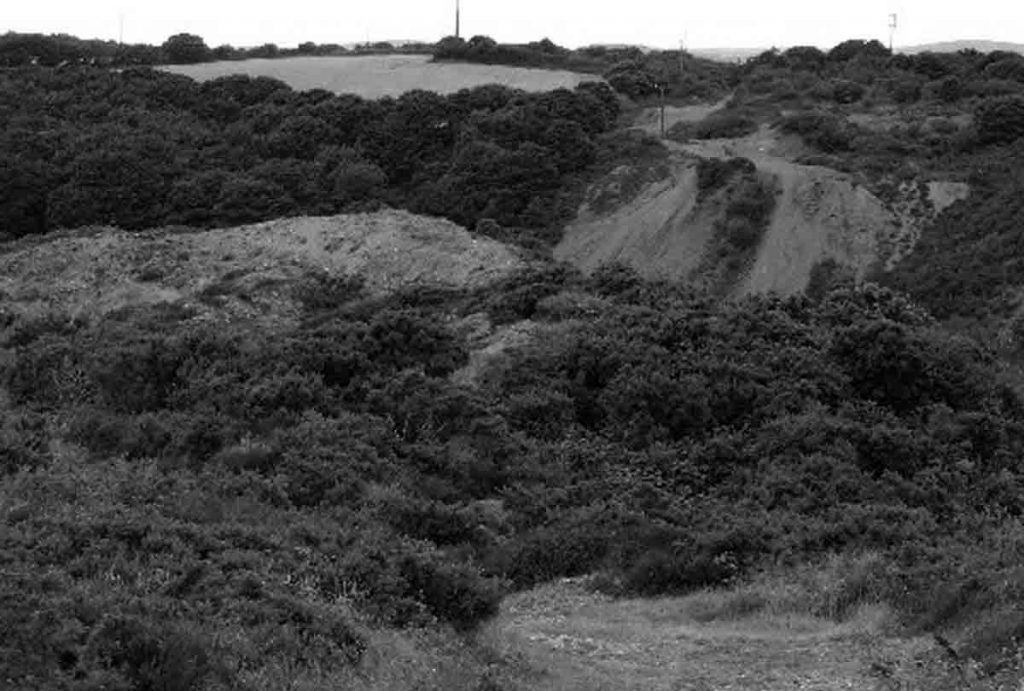
Gradually over the following 21 days after his final visit a gradual normality descended upon the property. It was at this last visit, that the clergyman, who arrived unannounced, made his way up to the bedroom where the mother of the house was. On-lookers outside the property, who could hear the clergyman speaking to those in it, physical and non-physical, swore that they saw a blue flame shoot out of the window and was seen to go on towards Hayle and the sea.
The clergyman went outside and announced to all the on-lookers that the cottage had been cleansed of the mischievous spirit and that the family would be troubled no-more. The father was so grateful and appreciative and earnest in his beliefs offered to pay the clergyman £5.00, in installments which he refused. The next day, the mother of the house went to the vicarage.
It is here that the truth of the matter was revealed, as the clergyman had noted that the mother had shown no real sign of fear or emotion over the alleged haunting on the numerous visits that he had paid and he suspected that she herself may be the cause, although he was unsure as to why she would do such a thing. The previous day, as he crept up the stairs, he had spied her rapping on the wall, and had continued to watch her for about five minutes before making his presence known. Realising that the game was up, she promised to confess all, and taking pity on the woman, the clergyman did a ‘bit of magic’ to rid the house of said spirit.
Woman confesses ‘haunting’ was a fraud
The woman confessed that she had caused the haunting so as to give the building a ‘bad name’ and that the neighbours would leave and she could possess both cottages as well as the neighbours’ small garden for her family.
She admitted that she used the temperaments of her family and neighbours to aid in the haunting, the more fear and panic that she caused, the more the haunting became ‘real.’
At the end of her confession, the woman signed her name and was told by the clergyman that if the ghost were to ever reappear then her shame would be announced from the pulpit.
All would be quiet on the ‘haunting’ news for a quarter of a century. Then in 1880 both ‘a rain of stones’ and ‘the ghost of Wheal Alfred’ would make an appearance when the ghost of gas hill hit the headlines and brought the supernatural back home to Truro.

